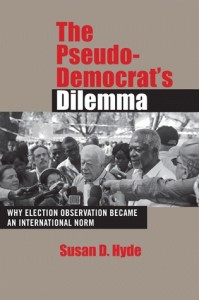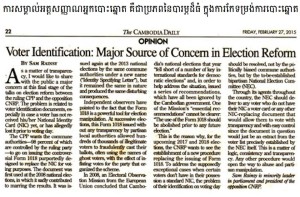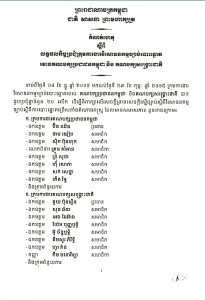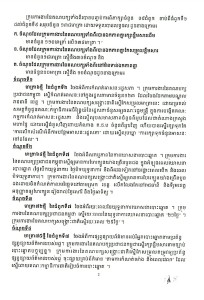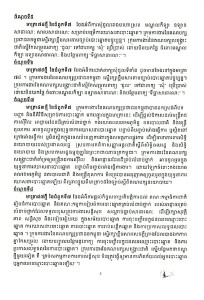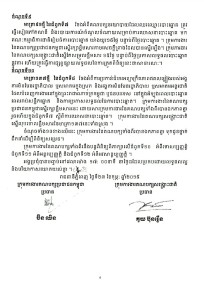Following a deal struck to amend the election law on Saturday, the National Assembly will be expanded by two seats for the next national election, official campaign periods will be reduced from 30 days to 21, with four days for public rallies, and NGOs will be banned from “insulting” political parties during campaigns.
Meeting a self-imposed deadline to end talks by February 28, Interior Minister Sar Kheng and opposition leader Sam Rainsy emerged from a four-hour meeting at the National Assembly at about 8 p.m. Saturday announcing compromises on 10 remaining points of disagreement between the parties.

In a press conference that lasted only three minutes and offered no details about the deal, the two leaders said the law would soon be sent to the National Assembly to allow the new bipartisan National Election Committee (NEC) to be formed.
“We have settled all the remaining points within the spirit that we have promoted—the spirit of national reconciliation, based on the culture of dialogue initiated by both parties—and showed that the culture of dialogue has positively brought with it fruitful results,” Mr. Rainsy said.
Mr. Kheng made brief remarks in support of Mr. Rainsy’s comments before the pair left without taking questions.
“I want to completely support what Excellency Sam Rainsy…has just said,” Mr. Kheng said. “Throughout this evening, the leaders of lawmakers from both parties have worked together with a spirit of responsibility and endeavored to compromise to resolve all the remaining issues.”
Working groups from both parties have been drafting amendments to the election law since last year, but left aside disagreements on issues such as voter identification and parliamentary seat counts for their leaders to discuss.
The new law is part of a series of reforms agreed to by Prime Minister Hun Sen in July to convince the CNRP to end its 10-month boycott of parliament.
The CNRP had said the 2013 election was rigged, but agreed that it would accept its seats if the NEC was reformed.
Mr. Rainsy said by telephone on Sunday that the CPP added five points for negotiation on Saturday, but that only Mr. Hun Sen’s recent proposal that parties who boycott parliament have their seats transferred to other parties was left unresolved, being put aside for further talks soon.
“Most of the remaining 15 points were resolved in a matter of minutes and there were only two or three stumbling points. The first one was the 1018 forms, which the CNRP considered the most important,” Mr. Rainsy said.
Commune councils issue the 1018 forms as proof of ID to registered voters who do not have national ID cards. The CNRP has accused the CPP, which controls almost every commune, of using them for voter fraud.
Read more….

